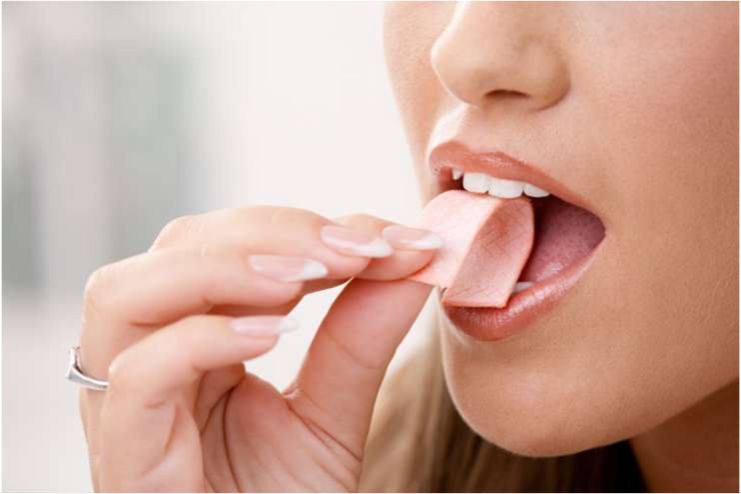Affiliate Disclaimer
Some links in this article are affiliate links. We may earn a small commission if you make a purchase through these links, at no extra cost to you. We only recommend products we find useful to our readersDo you believe chewing gum is merely a mindless habit? Chewing gum has some surprising secrets that may surprise you despite being limited to its category of simple entertainment or breath-freshening equipment. It’s not just about blowing bubbles; this little piece of gum may be doing amazing things you never would have thought possible for your body.
However, chewing gum has specific possible adverse effects, even though it may improve memory, reduce stress, or even help with weight management. Yes, there may be some dangers associated with that seemingly harmless behavior.
In this article, we will examine the whole picture and explore both extremes of the spectrum, from the striking health advantages to the less glamorous side effects. So, is chewing gum a dangerous habit or a hidden gem?
What is Chewing Gum?

Chewing gum is a sweetened product that people chew for its flavor. It is created from chicle, a natural gum, and other durable materials. The use of chewing gum dates back thousands of years. The Greeks consumed the sap of the mastic tree. The practice of chewing astringent and aromatic spruce resin for the same goals was adopted by New England colonists from native Indians.
However, gum is now manufactured artificially and packaged for mass consumption.
Chewing gum is a naturally occurring or artificially made resin or gum that is frequently flavored and sweetened with various substances. Although chewing gums’ components frequently differ between brands, they share a few fundamental substances.
Manufacturers use these (mainly artificial) components to make chewing gum today:
- Elastomers: Components that resemble synthetic rubber and give gum its palatable texture.
- Resin: The resin is similar to gum because it helps hold the gum’s shape and strengthens it so that it doesn’t lose its shape after packaging.
- Fillers: These are artificial additives, such as calcium compounds and talc, that add a bit of texture to the gum.
- Oils or Waxes: gum becomes softer and chewable as it warms up.
- Taste: Its distinctive fruity or minty flavor comes from natural or synthetic substances.
- Sweeteners and flavorings: These two compounds are the primary ones that vary from brand to brand depending on their choice of flavorings and the kind of sweetener they want to add (if they want to add any). Sometimes, these flavors are either natural or even synthetic. Some of the common types of sweeteners include sugar alcohols, stevia, or aspartame.
Related Articles: What Happens When You Swallow Gum? Know The Facts!
Benefits Of Chewing Gum?

According to Dr. Kahn, Chewing gum should not be used in place of routine brushing after meals or other oral hygiene practices. “Brushing after every meal and flossing every day are the greatest ways to maintain healthy teeth,” she explains.
The idea that chewing on various food-grade synthetic chemicals could benefit your health indeed seems strange. However, research indicates that there are several ways in which specific components and the chewing process itself may benefit your health:
1. Refreshes Breath
One of the most popular reasons people chew gum is to freshen their breath. Chewing gum can cover up foul breath, particularly after consuming pungent foods or beverages like coffee, garlic, or onions. On the other hand, some sugar-free gums go one step further by including substances like mint or essential oils that actively combat microorganisms that cause odor.
While gum doesn’t wholly eradicate foul breath, it can offer a short-term solution when you need to freshen up.
2. Enhances Dental Health
Chewing gum can benefit your teeth as long as it is sugar-free. After eating, chewing sugar-free gum can help remove food particles from your teeth, boost saliva to combat plaque, and restore enamel.
Gum that contains xylitol, a sugar alcohol used to sweeten gum, has also been shown to alter oral microorganisms. Researchers assessed how eating gum containing xylitol affected the bacteria in the men’s saliva in a small trial involving 70 Japanese males. Compared to the control group, the saliva of the group that chewed gum containing xylitol contained a much lower amount of microorganisms.
3. Increases Concentration and Decreases Stress
In addition to being beneficial for your teeth, chewing gum can have unexpected psychological advantages. Studies have shown that chewing gum may help increase focus, lower stress levels, and possibly boost cognitive function. Chewing may also improve blood flow to the brain, enhancing focus and alertness.
Chewing gum also reduces stress because, like fidgeting or doodling, it provides a repeating motion that soothes the mind. Therefore, gum is a great partner for stressful situations or high-stakes activities like tests, meetings, or public speaking.
4. Improves Cognitive Function
Research indicates that chewing gum can improve memory, attention, and reaction time, all of which can improve cognitive function. Chewing improves mental alertness, focus, and general cognitive function by increasing the blood flow to the brain, which may provide more oxygen and nutrients.
This easy exercise has been associated with increased brain activity, especially when performing tasks that call for focus and memory recall.
5. Avoid Ear Infections
Researchers have investigated xylitol as a potential treatment for pediatric ear infections. According to a scientific evaluation, xylitol seems to help prevent bacterial infections via Streptococcus pneumoniae and Haemophilus influenzae, which can result in inner ear infections, whether administered to children as chewing gum, a lozenge, or syrup.
However, experts also pointed out that more extensive trials are needed to be specific, and it only appeared to help children who were already healthy.
6. Aids in Post-Operative Intestinal Healing
Digestive distress may result from abdominal surgery. Research suggests that Chewing gum may help stimulate slow bowels.
Chewing gum aided in the recovery of intestinal function following a cesarean delivery, also known as a C-section, according to a small assessment of 10 studies with 1,659 participants. Chewing gum appears to aid in the healing process following colon surgery.
7. Boosts Saliva Production
Chewing gum stimulates taste and mechanical receptors, which promotes saliva production. To put it another way, gum makes you salivate. Because it counteracts the damaging acids in your mouth that erode tooth enamel and cause decay, saliva is essential.
Additionally, it continuously rinses your teeth to remove bacteria and plaque before they can lead to dental decay. Harmful particles have more difficulty adhering to your teeth the more saliva you have in your mouth.
8. Helps in Appetite Control
Chewing Gum is a valuable tool for appetite management. It prevents unexpected cravings and lowers the desire to indulge in unhealthy snacks between meals. The simple act of chewing creates a psychological barrier against mindless eating, keeps your mouth busy, and makes portion control easy throughout the day.
9. Enhanced Energy
Chewing gum isn’t only a habit; it may also serve as a rapid energy boost.
According to research, chewing’s regular motion improves blood flow to the brain, fostering alertness and reducing weariness. Chewing can help you stay focused throughout lengthy meetings, study sessions, or late-night projects because it provides a slight stimulation.
Furthermore, some flavors—like mint—can improve wakefulness even more, providing a revitalizing energy boost when needed. It’s an easy yet powerful method of maintaining energy and attention.
10. Quitting Smoking
Chewing gum might keep your mouth busy while giving up smoking.
According to a 2013 review of the literature, nicotine gum and other forms of nicotine replacement therapy are 80% more successful in helping smokers stop Smoking than a placebo. It is even more effective to use two types of nicotine replacement treatment.
11. Satisfies Thirst
Drinking water is the only way to stay hydrated, and chewing gum won’t improve things. However, there is some evidence that it can temporarily reduce thirst. Chewing gum increased saliva, which relieved dry mouth and thirst, according to a small study of 12 studies. Continue sipping the H20, though.
12. Heartburn Relief
After meals, chewing gum might be a quick fix for indigestion and heartburn. Chewing produces saliva, which helps wash stomach acid back down the throat and neutralize it. By reducing reflux symptoms, this calming effect offers natural relief from the discomfort of acid buildup and heartburn.
What Are The Side Effects Of Chewing Gum?

Chewing gum is a common way to reduce food cravings or relieve stress. However, it may have more negative impacts than you imagine, even though it seems like a great way to give your kids something different from sugary treats. Before you slide in the next piece of gum, consider the following:
1. TMJ, or Temporomandibular Joint Disorder
Chewing gum, particularly on one side of the mouth more than the other, can cause TMJ or jaw muscle imbalance.
When a group of muscles overuses, it strains the ligaments, and the pain becomes crippling. Additionally, it may result in headaches, toothaches, and earaches.
2. Issues With The Stomach
Chewing gum might result in stress in the intestines and stomach, which may exacerbate IBS symptoms. To digest food effectively, your stomach requires time to relax. However, chewing gum constantly causes you to swallow too much spit, which prevents your body from doing so.
Additionally, chewing alerts your body that food is ready to be swallowed, which triggers the activation of the digestive enzymes and acids that cause various issues. When you eat, your body may grow bloated, overproduce the stomach acid, and reduce your capacity to digest food.
3. Release of Mercury from Dental Fillings
Chewing gum may release mercury into your body if you have amalgam fillings that include mercury as one of their constituents. High levels of mercury in the body system can result in mental illnesses, neurological troubles, and other health problems.
4. Migraines
According to a recent study, youngsters who chewed gum daily experienced headaches. For two-thirds of the test individuals, headaches disappeared after they stopped chewing gum for a month, and the frequency and intensity of their headaches significantly decreased for around half of the remaining subjects. Their headaches returned when they resumed chewing gum.
Advice on How to Pick the Best Chewing Gum
Search for Sugar-Free Choices: Always choose sugar-free gum. Look at the label to ensure sugar alcohols such as sorbitol or xylitol are specified as principal components.
Examine Gum Enhanced with Fluoride: Fluoride-enhanced gum can offer extra protection if you are more susceptible to cavities. Seek out gums with fluoride benefits listed on the packaging.
Synthetic Tastes: Certain flavors may irritate persons with sensitive teeth, even when they produce minty freshness. If you are sensitive to certain flavors, think about natural flavors.
Look for the American Dental Association Seal of Acceptance (ADA): This seal of approval signifies that a product has undergone safety and effectiveness testing. By choosing gum bearing this seal, you can ensure you get a product that will improve your oral health.
FAQs
- Is Chewing Gum Bad for Your Teeth?
Regular sweet gum can damage your teeth. The sugar used as a sweetener will encourage oral microorganisms that might harm your teeth. Selecting sugar-free chewing gum—mainly sweetened with xylitol—can enhance oral health and freshen your breath.
- Does Chewing Gum Make You Thin?
Chewing gum may improve feelings of fullness, decrease cravings, and encourage you to eat less. Additionally, it might help you burn a few extra calories each day. It’s unclear whether any of these effects would lead to sustained weight loss.
- Does Chewing Gum Make You Hungry?
Some people may become more hungry after chewing gum because it stimulates their stomach secretions. Keeping their tongues occupied helps others suppress their appetite and reduce their desire to nibble.
- Does Chewing Gum Cause Gas and Bloating?
To feel relief, it’s critical to comprehend how gas accumulates in the body. Chewing gum can lead to gas because it causes certain people to inhale more air, which can result in gas accumulation.
- Can You Swallow Your Gum?
Swallowed chewing gum occasionally doesn’t cause much damage because it usually passes through your digestive tract without problems. However, experts recommend avoiding excessive consumption daily as it can cause blockages or other type of digestive issues.
Conclusion
Chewing gum has many health advantages, from improving digestion and appetite control to increasing focus and lowering stress. However, it is not without risks, and some adverse effects remind us that mindfulness is necessary for even the most basic routines.
The key is to be moderate. By choosing sugar-free gum and chewing it carefully, you can avoid the hazards while enjoying the benefits. When used properly, chewing gum can be surprisingly helpful in your health toolbox rather than a miracle cure.
Balance is crucial. Make sensible choices, chew with awareness, and allow this small but powerful habit to benefit you!
-
Aug 2018Written by Somapika D
-
Jan 2025Edited by Ankita
References
- https://greatist.com/health/benefits-of-chewing-gum
- https://www.ada.org/resources/ada-library/oral-health-topics/chewing-gum
- https://www.britannica.com/topic/chewing-gum
- https://www.webmd.com/diet/what-to-know-about-chewing-gum
- https://www.sciencedirect.com/topics/agricultural-and-biological-sciences/chewing-gum
- https://health.clevelandclinic.org/is-chewing-gum-bad-for-you
- https://www.burtonfamilydentalmi.com/benefits-of-chewing-gum
- https://newarkdentalohio.com/the-surprising-benefits-of-chewing-gum-when-done-right
- https://pmc.ncbi.nlm.nih.gov/articles/PMC8485974
- https://pmc.ncbi.nlm.nih.gov/articles/PMC5394625
- https://www.hiltonheadcosmeticdentistry.com/chewing-gum-may-cause-tmj-headaches-in-teens
- https://sebastiansmilespediatricdentistry.com/2019/11/01/disturbing-side-effects-of-chewing-gums
- https://www.ada.org/resources/ada-library/oral-health-topics/chewing-gum
- https://www.mychoicedentistry.com/which-chewing-gum-is-safe-for-my-teeth
- https://cottlevillesmiles.com/chewing-gum-for-teeth-your-guide-to-safe-picks
In this Article

















